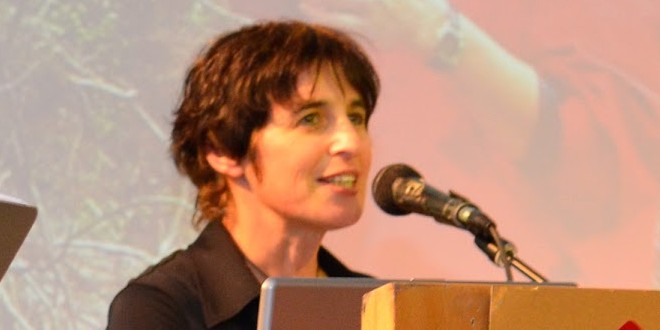Even the frozen Arctic is no longer immune to severe wildfires, according to a report by experts that included an Israeli and is due to be presented soon at a United Nations conference on the environment in Nairobi in Kenya.
By 2030, the number of extreme fire incidents is expected to increase by about 14% and by the end of the 21st century by about 50%, according to the report. “Wherever there are trees, fires are likely to occur,” said Prof. Lea Wittenberg of the University of Haifa, the Israeli representative on the UN expert team that authored the report.
She is a physical geographer and chairman of the department of geography and environmental studies at the university. In recent years, her research has focused on the role of disturbances in Mediterranean ecosystems and specifically on understanding the impact of wildfires on soil-vegetation dynamics, and hydrological and erosional processes. She uses field and laboratory experiments to explore the role of fire on vegetation regeneration, soil and ash properties.
Wittenberg is currently engaged in several European and local projects addressing fire, including post-fire management effects on the ecosystem, urban hydrology and ecosystem services. She has authored more than 70 scientific articles in peer-reviewed journals, book chapters and conference proceedings and serves as associated editor in Land Degradation and is a member of the Commission on Land Degradation and Desertification in the International Geographic Union.
“One of the team’s important recommendations, which is certainly true for Israel as well, is aimed at a significant change in resource allocation and improved readiness to deal with fire prevention,” said Wittenberg, The authors propose to governments around the world to adopt a new “two-thirds-third” preparedness formula according to which, two-thirds of the resources should be invested in planning, prevention, readiness, and restoration of forests and ecosystems and only one-third of the resources in the fight against fire.
According to the report, entitled “Spreading like wildfire: The rising threat of extraordinary landscape fires,” the researchers point out that the danger of extremes in fire events threatens almost their entire region of the earth, including the northern and arctic regions that have so far suffered almost no fires.
According to the researchers, climate change, global warming and extreme fire events have a reciprocal effect. Fires become more frequent and severe due to lack of rains and rising droughts, declining humidity, recurrence of heat waves and winds that get more extreme during fire seasons. At the same time, major fires are destroying sensitive and high-carbon ecosystems, exacerbating global warming.
To prevent extreme fires, the authors call for data integration and monitoring, along with local knowledge and increased local and international collaborations. “We are basically telling governments around the world that they are putting money in the wrong place. There is no doubt that firefighters fighting on the front lines of fire should be provided with the best means to succeed in their mission,” said the University of Haifa professor.
The researchers also point out that the fires disproportionately affect the world’s poorest countries and prevent them from progressing towards the UN’s sustainable development goals. This requires an understanding of fire behavior, developing the integration of scientific knowledge and policy, appropriate regulation and incentives for proper management of open spaces. The report concludes with a call for the adoption of international standards for the safety and health of firefighters and giving them time to rest and recuperate after their work as well.
The shortcode is missing a valid Donation Form ID attribute.




